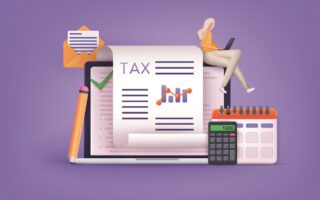When Is Your Tax Freedom Day?
If you ever had the feeling that you have spent half your working life just paying tax, you are not far wrong. What with income tax, national insurance/social security, capital gains tax, VAT, council tax, excise duties and so on, a considerable amount of our hard-earned income gets diverted to the taxman each year.
Even if you are lucky enough to be retired, you are still faced with tax on your savings, investments and pensions, not to mention the amount payable in VAT each year. Having paid so much tax all your life, you will not want to pay any more tax than necessary. Whether you are working or retired, tax planning is an important part of protecting your wealth.
The Tax Burden of Typical Workers in the EU
Each year, the Institut Economique Molinari, measures and compares taxes payable across the 28 EU member states. While it focuses on employees and how much tax and social security they pay, it illustrates the general tax burden of each country and how they compare to each other.
The study calculates a “tax liberation day” for each member state, indicating how much of a year’s work is devoted to paying taxes, as well as the average “real tax rate” for employees there.
The 2018 results reveal that, on average, taxes are actually going down – but only slightly. For the fourth year in a row, the average real tax rate for typical workers in the EU reduced, falling 0.3% to 44.5%.
However, the report highlights that Europe’s ageing population is putting pressure on pension and healthcare spending for governments throughout the bloc. This does not bode well for future tax cuts; as the population ages, there are fewer people in employment to pay for these costs, leaving taxpayers to plug the gap. With under half the EU’s 508 million citizens in the labour force, the report concludes that “economic growth remains European workers’ best hope against tax increases in the near term”.
How does France fare?
Yet again, France has the dubious honour of having the latest tax freedom day. Although two days earlier than in 2017, the symbolic date when French workers stopped paying their tax was well over halfway through the year, landing on 27 July. That is nine days later than second-placed Austria and a whole four months behind top-placed Cyprus! This means that French employees worked for 208 days of the year just to pay their tax bill.
France also has the highest real tax rate of 56.73%. The average gross average salary is €56,815, but after taxes workers are only left with €24,582 to spend on themselves and their families.
However, despite these alarming figures, with good financial planning France can actually be a very tax-efficient place to live, especially for retirees with capital to invest.
Cyprus continues to have the earliest tax freedom day on 27 March – two weeks ahead of runner-up Malta on 10 April, with Ireland taking third place at 26 April. When it comes to the lowest real tax rate, Cyprus leads the way at 23.37%, then Malta at 27.38% and Ireland at 31.55%.
What about the UK?
According to the study, the UK’s tax freedom day comes fourth, landing on 8 May, with a real tax rate of 35.08%.
However, many think tanks undertake their own research to calculate their country’s tax freedom day, using different methodologies. While the Institut Economique Molinari looks at income tax, social security contributions and VAT, the UK’s Adam Smith Institute (ASI) measures the entire tax take, including taxes that do not come directly out of the earner’s pocket. This approach places the UK date three weeks later.
The ASI calculates that the 2018 UK tax freedom day landed on 29 May – three days more than the year before, and the latest date since comparable records began in 1995.
What does this mean for taxpayers?
These remain taxing times for taxpayers, and not just for workers, as retirees are also faced with higher taxes. Of course, the study is just indicative of the average taxpayer in each country – higher earners will generally have a later tax freedom day.
In many cases, there are steps you can take to lighten your tax burden, especially on your capital investments and pensions. While we all have to pay our share of taxes, cross-border taxation is highly complex; do not risk getting it wrong or paying more than you have to. Take personalised, specialist advice on the compliant tax mitigation opportunities available in France and the UK – you may be surprised at how you can improve your tax situation.
[snippet slug=”blevins-contact” /]
Share to: Facebook Twitter LinkedIn Email
Leave a reply
Your email address will not be published. Required fields are marked *





